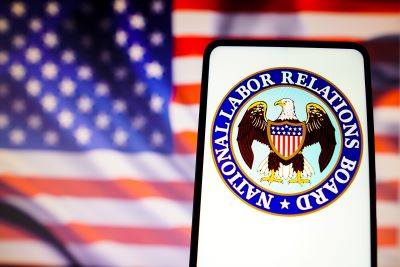The current National Labor Relations Board (NLRB) under President Joe Biden has been heavily involved in moving forward the administration’s prolabor goals. But as the Biden administration draws to a close, the Board faces a series of challenges.
Board Abandons Joint Employer Regulations
The NLRB’s expansive joint employer rule, issued in October 2023, faces an uncertain future. The rule, which could have found joint employment when one putative employer had only an unexercised right to oversee some part of the work, was successfully challenged in a Texas district court. The Board promptly filed an appeal to the U.S. 5th Circuit Court of Appeals. Then came the Supreme Court’s Loper Bright decision dispensing with judicial deference to agencies. Almost immediately, the Board withdrew its appeal without explanation. The extant rule, requiring indicia of direct control to establish joint employment, remains in force. But the Board’s joint employer rule may not be dead.
A case pending before the NLRB—Cognizant and Google—could establish by Board decision the joint employee standards it abandoned in its regulation. If it did so, the NLRB would then have to explain why a court should accept an administrative ruling based on regulatory criteria already rejected by a court and abandoned by the Board. This is a daunting prospect.
Chair Facing Nomination Fight
The nomination of NLRB Chair Lauren McFerran for another term has sparked intense opposition from the business community and within the Senate. The nomination of Republican Josh Ditelberg to fill the fifth Board seat is not controversial. If both nominees are confirmed by the full Senate before the November election, the NLRB could potentially have a Democratic majority until 2026 even if there is a Republican president opposed to many of the Board’s policies. That anomaly—plus a deep-seated antipathy to McFerran’s aggressive prounion stance—has given the opposition to McFerran more than partisan heft. The business community is urging the Senate to reject McFerran and has launched an intense lobbying effort against her nomination.
On August 1, the Senate HELP Committee—chaired by Senator Bernie Sanders (I-VT) voted to advance both nominees over fierce objections from the Republican members. Democrat McFerran’s nomination passed in a party-line vote, 11-10. Ditelberg’s nomination passed with a bipartisan vote of 18-3.
Majority Leader Chuck Schumer (D-NY) is scrambling to schedule a final vote in the face of a looming August recess and an unpredictable Senate head count. Senator J.D. Vance (R-OH) is off campaigning as the Republican nominee for vice president. Other senators will leave soon to join the campaign trial either on behalf of one of the two presidential candidates or to fight their own election battles. Senator Robert Menendez (D-NJ) is resigning. Senators Joe Manchin (I-WV) and Kyrsten Sinema (I-AZ) haven’t declared a position, and Vice President Kamala Harris, currently running her own campaign for president, isn’t likely to be available to break a tie. This vote remains unsettled.
Board Facing Deference and Constitutionality Challenges
In the wake of recent Supreme Court decisions, the Board is engulfed in several suits challenging the level of deference it deserves in a post-Loper Bright context. Although the Board insists it enjoys a unique status requiring judicial deference to its decisions, potent legal arguments are being posed by powerful antagonists, such as Space X, Amazon, and Starbucks. The Board’s history of “pendulum-like” policy changes is a persuasive argument against deferring to precedent-breaking Board decisions.
At the same time, challenges to the constitutionality of the Board’s structure—particularly the inability of the president to remove Board members and the role of administrative law judges (ALJs) in making legal rulings and issuing legal remedies—grow in strength and number. The powerful, deep-pocketed opponents lead the way in this existential battle, but these arguments are now appearing in routine objections to routine Board rulings.
These issues will likely be decided by the Supreme Court, perhaps as soon as the end of the next term. As a result, at the end of the prolabor Biden administration, the Board is not only fighting to vindicate its role as the principal shaper of workplace law, but it must also fight for its very existence.
Written by the editors of the Federal Employment Law Insider.

